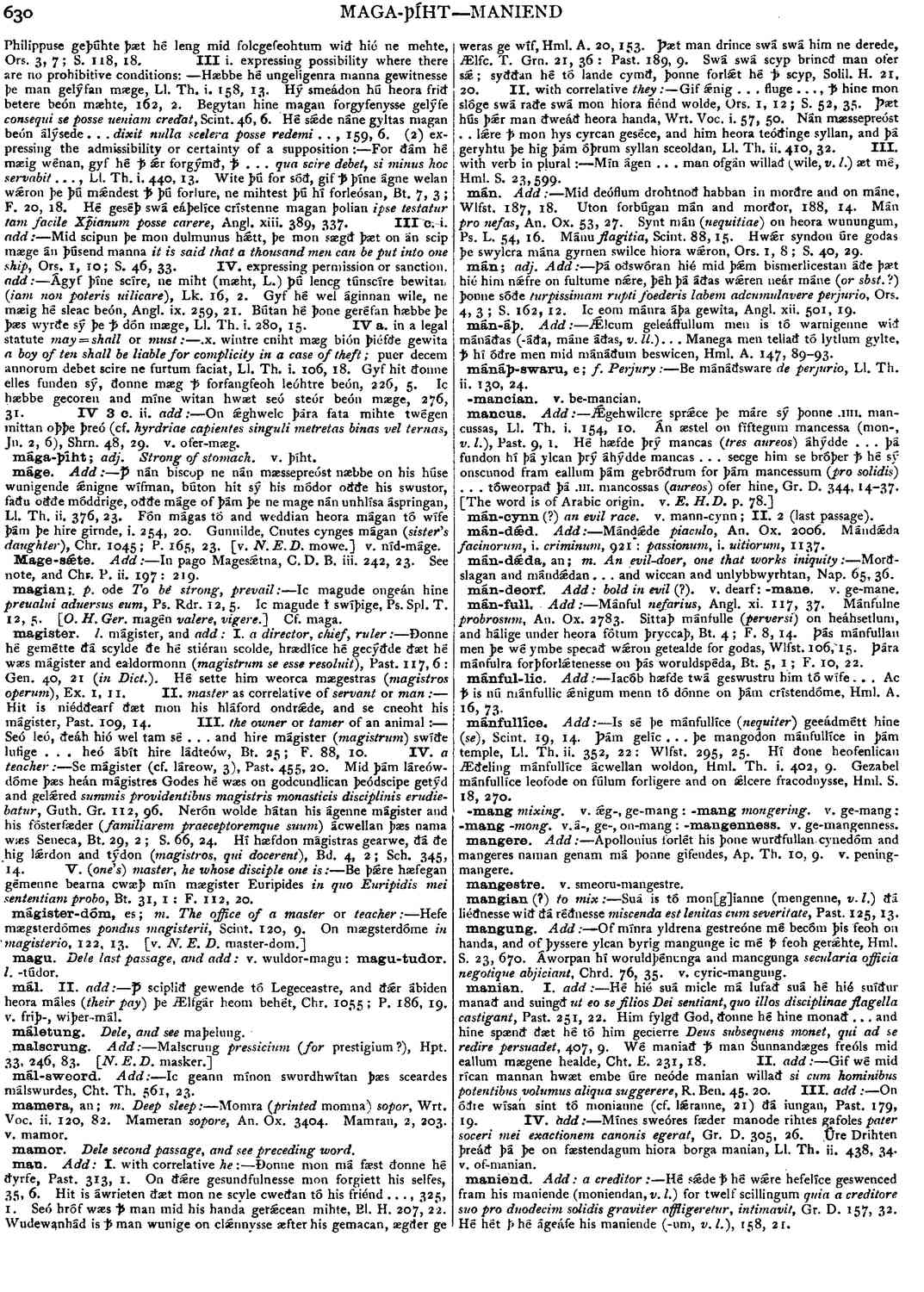man
-
Ðonne mon má fæst ðonne hé ðyrfe,
- Past. 313, 1.
-
On ðǽre gesundfulnesse mon forgiett his selfes,
- 35, 6.
-
Hit is áwrieten ðæt mon ne scyle cweðan tó his fríend . . . ,
- 325, 1.
-
Seó hróf wæs ꝥ man mid his handa gerǽcean mihte,
- Bl. H. 207, 22.
-
Wudewanhád is ꝥ man wunige on clǽnnvsse æfter his gemacan, ægðer ge weras ge wíf,
- Hml. A. 20, 153.
-
Þæt man drince swá swá him ne derede,
- Ælfc. T. Grn. 21, 36 : Past. 189, 9.
-
Swá swá scyp brincð man ofer sǽ; syððan hé tó lande cymð, þonne forlǽt hé ꝥ scyp,
- Solil. H. 21, 20.
- Ors. 1, 12 ; S. 52, 35. Þæt hús þǽr man ðweáð heora handa, Wrt. Voc. i. 57, 50. Nán mæssepreóst . .
-
Mín ágen . . . man ofgán willað (wile,
v.l.
) æt mé,- Hml. S. 23, 599.
Bosworth, Joseph. “man.” In An Anglo-Saxon Dictionary Online, edited by Thomas Northcote Toller, Christ Sean, and Ondřej Tichy. Prague: Faculty of Arts, Charles University, 2014. https://bosworthtoller.com/55074.
Checked: 0